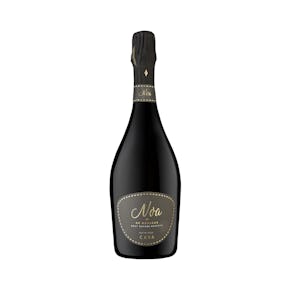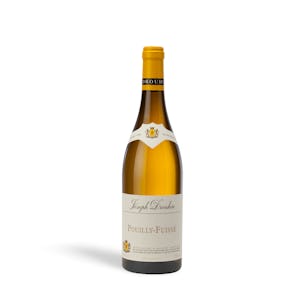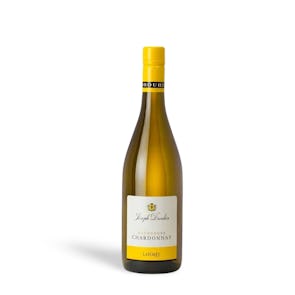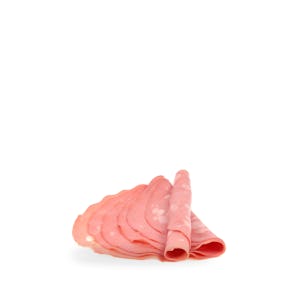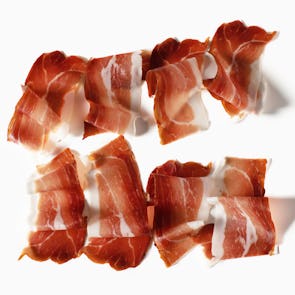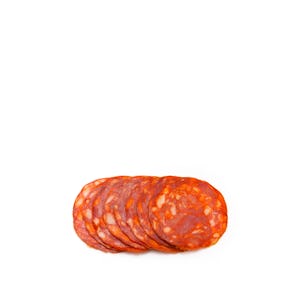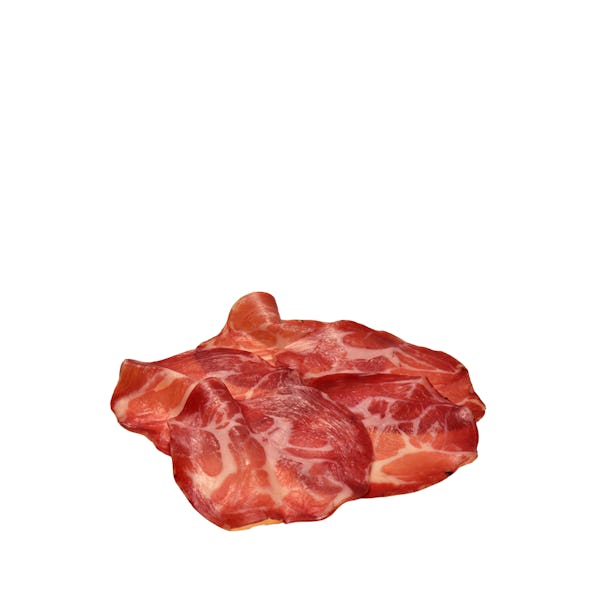
TASTING NOTES FROM THE CURATOR
Originating from areas along the coasts of Southern Italy, coppa—otherwise known as capocollo or capicola, is a dry cured meat similar to prosciutto. Although not as widely popular as prosciutto or salami, coppa is a valued culinary cut, making it a hidden gem of Italian cured meats. Made from the “coppa,” a collection of muscles of the pork that runs through the neck and shoulder (“capo” literally means head, and “collo” means neck), it is a beautifully marbled meat that is 30% fat and 70% lean, making it tender and moist, even after being cured.
This Italian cold cut is still made in the traditional way. The pork meat is put in a tub filled with a marinade of red wine, spices, and herbs, before being rubbed with salt and put into sausage casings to be cured for three to six months. The spices and herbs used differ with each region, with some using cinnamon or oak bark, and some using vinegar or chili peppers. The herbs and spices, however, are never overpowering. They lend a light and unique flavor to the meats, balancing the tender, fatty texture. The careful preparation of this pork cold cut ensures that the meat has a slightly chewy, melt-in-your-mouth consistency.
PREPARATION OR PAIRINGS
Coppa is great on its own, whether cooked or uncooked. Make it the star of the show on your cheese and antipasti platters—it pairs beautifully with hard cheeses, olives, and apple slices! But the Italian cold cut is also a very versatile meat; it’s light earthy flavor can highlight and enhance anything you put it on.
- Wrap it around spears of asparagus or chunks of melon for appetizers, or use it to dress up your dishes.
- You can crisp it up to use as garnish to elevate your salads and pastas.
- Or use it as an ingredient for pizzas and omelets to give them a mild but delicious heat.
- Smear a thin layer of mayonnaise on lightly toasted sourdough or ciabatta, add some slices of coppa, some grilled onions, and top with Provolone cheese, and you have yourself an incredible sandwich.
AN ANCIENT TRADITION
Cured meats have been around for a long time, and coppa could be one of the oldest. Documented production of coppa has been around since the early 1800s, but more records show that its origins date even farther back. It could be traced to the Magna Graecia period, an era in history when the areas along the coast of Southern Italy were colonies of Greece, between the 8th and 5th centuries BC. The pigs used for coppa come from the same area it is produced, which has remained the same: the Calabria region, which occupies the “toe” of the boot shape that makes up Italy.
Storage Instructions
Vacuum-sealed packs of hand-carved cured meats can last up to five months in the refrigerator (never the freezer). Once the pack is opened, they’re best enjoyed within the day.


